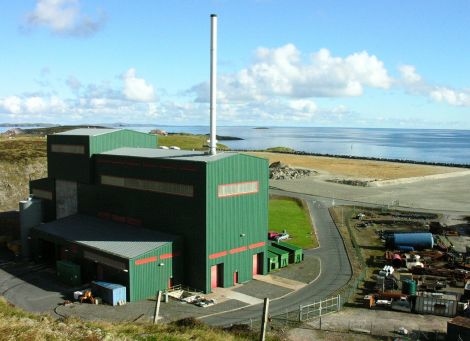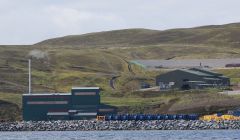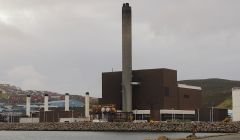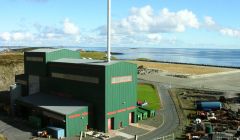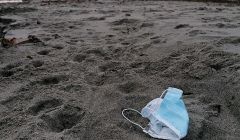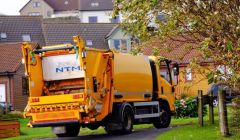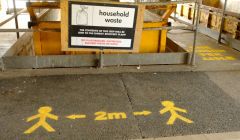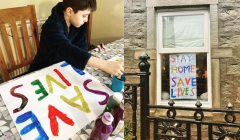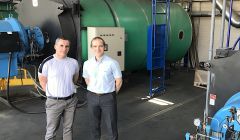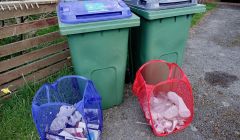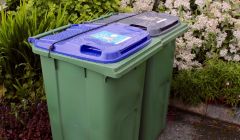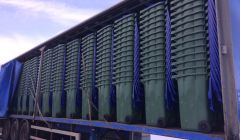Council / Future of incinerator under the spotlight
THE FUTURE of the energy recovery plant in Lerwick will be a main focus of a zero waste strategy for Shetland which could be developed if councillors give it their backing next week.
The strategy would aim to reduce the amount of rubbish generated in the isles, as well as seek to reduce waste disposal costs and lower carbon production.
One of its main areas of focus would be the future of the energy recovery plant (ERP) at Gremista in Lerwick, which is now in its 20th year of a 20-25 year lifespan.
The plant burns rubbish to power Lerwick’s district heating scheme, which provides hot water to over 1,000 properties in the town.
A report from waste management team leader Colin Bragg, due to be presented to members of Shetland Islands Council’s environment and transport committee on Tuesday, said with “stricter restrictions on landfill from 1 January 2021 decisions must be made in the coming months” on the future of the ERP.
“The ERP forms a central part of any current zero waste strategy,” he added.
Bragg said the “diversification of waste streams is important for the long-term future of the ERP”, particularly as some recyclable rubbish has moved away from the plant as it now being collected from households and being sent south.
Work is currently underway on analysis of the long-term future of the plant, and this will determine when investment may be needed and if any changes to the plant’s operation are required.
Legislation and waste management arrangements have altered since the plant was built, with policy due to change further in the future.
A strategic outline business case on the energy recovery plant and Shetland Heat Energy and Power, which runs the district heating scheme, is due to be discussed in private at the environment and transport committee meeting.
Become a member of Shetland News
In addition, a zero waste strategy would support the establishment of a Zero Waste Shetland Partnership, which would bring together organisations, businesses and grass roots groups to “coordinate and facilitate a community based asset approach to waste awareness and prevention activities”.
The work on developing a strategy will be supported by a graduate project officer, which is funded by money from the Change Fund.
Other roles of the strategy will include working with organisations and groups to encourage solutions in the community for the reuse of materials, improving recycling rates and achieving maximum sales values on materials collected.
There will also be an emphasis on reducing the amount of waste sent to landfill.
Last year Shetland Islands Council started kerbside collections of items like plastic and paper in a bid to better its poor recycling rate.
Councillors will be told that recycling costs are already cheaper than the equivalent disposal costs at the ERP, with the price of recycling set to reduce further once a dedicated sorting shed is built at Gremista.
A zero waste strategy would also provide the backdrop for recycling being extended to all commercial businesses by September 2019.
Bragg said in his report that it is becoming “increasingly difficult for local authorities to maintain efficient and cost effective waste management services” – meaning that a “strategic approach” is now more important than ever.
He believes that a coherent and clearly communicated strategy will “help to facilitate the behavioural and attitudinal change required to ensure successful waste management within the Shetland community”.
Become a member of Shetland News
Shetland News is asking its readers to consider paying for membership to get additional perks:
- Removal of third-party ads;
- Bookmark posts to read later;
- Exclusive curated weekly newsletter;
- Hide membership messages;
- Comments open for discussion.
If you appreciate what we do and feel strongly about impartial local journalism, then please become a member of Shetland News by either making a single payment, or setting up a monthly, quarterly or yearly subscription.






